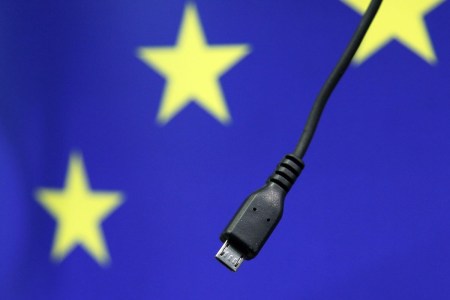
As reported by Reuters , the European Commission remains committed to the idea of introducing a single connector for charging mobile devices, and tomorrow, September 23, will present a new bill aimed at achieving this goal. This is another advancement into the EUs attempts to legislate tech and tech services
Without going into details, a Reuters source said that with the new legislative initiative, the EU has two goals: to standardize the charging connector of mobile devices and to sell chargers separately from gadgets.
To begin with, it is worth remembering that since 2009, the European Commission has been urging technology companies, including Apple, to use a single charging standard instead of proprietary ones – for end consumers and the environment (reduction of e-waste). Earlier, Apple, Samsung, Huawei and Nokia signed a memorandum agreeing to use microUSB in phones released after 2011. But Apple itself, taking advantage of the loophole, limited itself only to the release of an adapter from Lightning to microUSB.
By now, most of the leading smartphone manufacturers have switched to USB-C for charging instead of the outdated Micro-USB – even for the most budget models. In fact, Apple, alone among the major manufacturers, continues to resist the introduction of USB-C into the iPhone instead of the proprietary Lightning. In 2020, the European Parliament approved a resolution calling for a single standard for charging mobile devices, and then only Apple opposed – the iPhone maker said it would “stifle innovation” and inadvertently create more e-waste. But that resolution was about the charger’s power supply, not the cable.
As for the exclusion of charging blocks from the delivery of mobile devices, here Apple has played ahead of the curve – with the release of the iPhone 12 in 2020. And many Android manufacturers have followed suit, including Samsung, Xiaomi and Google.
In 2018, Apple switched the iPad Pro to a universal USB-C connector instead of the proprietary Lightning connector, but the expected rejection of the proprietary Lightning connector did not happen in iPhones, despite regular rumors. The latest iPhone 13 smartphones have retained the proprietary Lightning connector, and lately there have been more and more suggestions that if Apple ditches Lightning, it will be more in favor of its own MagSafe wireless charging technology, rather than USB-C.








